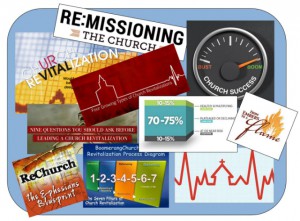
This seems to be the fundamental question on people’s minds when they are discussing the Revitalization of the church-at-large. In their attempts to answer it they publish books, develop programs, and imagine movements. But books, programs, and movements aren’t the right answer for Revitalization. That shouldn’t surprise us. After all, the question that we tend to ask – “What will it take for the church to prosper in America again?” – isn’t even the right question.
One of the reasons that this is not the right question is that Revitalization is not an endeavor to restore the church to a status that it once held in American culture. While there was nothing intrinsically wrong with the church having an influential and honored place in our society, it is not especially important that the church enjoy such things.
The church can be the church she is called to be without being liked, appreciated, or favored by the culture in which she exists. Indeed, we may even find that we can more readily be a faithful church when we are not liked, appreciated, or favored.
And being a faithful church is – or, at least, should be – the goal of Revitalization.
The question that we should be asking ourselves about Revitalization isn’t one that is framed around what the church looks like in the context of our culture, but one that explores how we might engage the people of our culture with the Gospel of Jesus Christ. In other words, it’s not “How do we make the church prosperous again?” but more like “How do we share the treasures of God’s Word and Sacraments with the people in our community who are perishing?”
Once we’ve started asking the right question about Revitalization we are on our way to being a faithful church. Of course, asking the question isn’t enough. Revitalization begins when we answer the question in word and action. When we do, we find that Revitalization doesn’t depend upon the books, programs, and movements that are so prominent in the American church – and we may even discover that such things may hinder us from the simple way in which we are called to revitalize the church.
What is that simple way? This is a great Revitalization question because it goes beyond revitalizing the church to revitalizing us.
Not surprisingly, the simple way is not necessarily an easy way. It obliges us to stop looking to the pastor, or evangelism committee, or the congregation as a whole to share the Gospel with the people whom God has put into our lives and it depends upon each of us to speak God’s Word of salvation to our neighbors, co-workers, classmates, family members, and friends.
Books, programs, and movements may be helpful resources to us as we seek new ways to bring the Gospel to new people, especially when we’re reaching out to people who are not like us. But Revitalization does not happen through these things. Ultimately, Revitalization takes place as a work of the Holy Spirit through God’s people when they faithfully respond to His call to be witnesses of Jesus to the people in their everyday lives.
What does it take to revitalize the church? Pastors faithfully proclaiming God’s Word and rightly administering His Sacraments. Congregations committed to equipping and supporting members to be effective witnesses of Jesus. And you.
Questions to consider:
- In what ways have I used “books, programs, or movements” to avoid answering the call to be a witness of Jesus to the people in my life?
- Who are the people in my life who are outside of the church and its influence but can be reached by me?
- What do I need to be a more effective witness of Jesus to the people in my life? Where will I find it?

